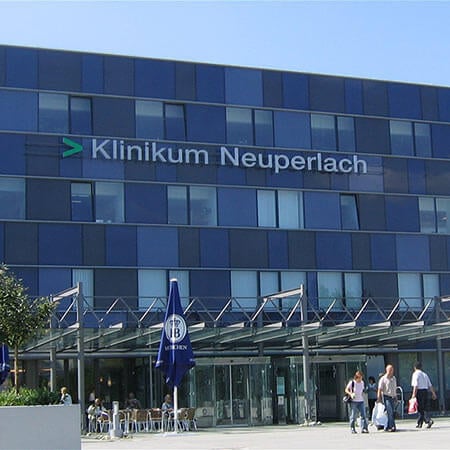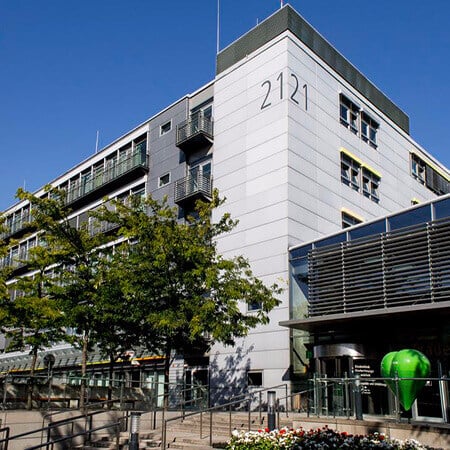Diabetes mellitus type 1 is an autoimmune disease that destroys the islets of Langerhans in the pancreas. As a result, insulin production decreases and eventually stops completely. With a lack of this hormone in the blood, the glucose levels rise. The basis of the treatment of the disease is lifelong insulin replacement therapy. Several years or decades after the onset of the disease, doctors also have to deal with the complications of diabetes mellitus. You can undergo your treatment in one of the Endocrinology Centers in Germany to bring the disease under control. German doctors will ensure the normalization of carbohydrate metabolism and help you to cope with the complications of diabetes.
Content
- Conservative treatment
- Surgical treatment
- Treatment of complications of diabetes mellitus
Diabetes mellitus type 1 is treated with insulin. Doctors can implant an insulin pump to make treatment more convenient and effective. Additional medical procedures and operations may be required for complications from the heart, kidneys, brain, eyes, and other organs.
You can undergo your treatment at one of the following hospitals: University Hospital of Ludwig Maximilian University of Munich, Hospital Neuperlach Munich, or University Hospital Carl Gustav Carus Dresden.
Our company's employees will take care of the organization of your trip, ranging from choosing a hospital and a doctor to translating the received recommendations into your native language. They will help you to apply for a visa and prepare medical documents, get an appointment with a doctor without a long wait, and not pay additional fees for foreigners to the hospital account. During the entire treatment, you can contact your personal medical coordinator for help with any questions that may arise.
Conservative treatment
Patients with diabetes mellitus type 1 receive lifelong insulin therapy. Since the body does not produce its own hormone, it must be injected subcutaneously every day. Patients make injections themselves. The task of doctors is to choose the most suitable dosages.
Doctors in Germany combine insulin with different durations of action to mimic the natural production of insulin by the pancreas. Prolonged-action medications create the effect of basic secretion, and short-acting insulins mimic the release of the hormone after a meal. This ensures normal glucose metabolism, which is close to natural carbohydrate metabolism.
Surgical treatment
In recent years, the treatment of diabetes mellitus type 1 in Germany has increasingly included insulin pump therapy. It is a very convenient treatment option for a patient, as there is no need to make constant injections.
A pump is implanted subcutaneously during a minor surgical procedure. The pump may be filled with insulin or contain replaceable cartridges. Modern pumps monitor blood glucose levels, so it is convenient for doctors to select and adjust dosages.
Typically, pumps only replace basal insulin secretion. Some hospitals in Germany have already begun to use the latest pumps, which also replace postprandial insulin secretion (after meals). They monitor glucose levels and react to their sharp increase by injecting another portion of insulin into the blood.
Type 1 diabetes mellitus can rarely be treated with a pancreas transplant. Doctors use this method for severe cases of the disease only, usually after the development of kidney failure. The technique allows restoring the production of endogenous (a patient's own) insulin, but a person has to receive lifelong immunosuppressive therapy to prevent immune rejection of a donor organ.
Treatment of complications of diabetes mellitus
With poor control of carbohydrate metabolism in a person, complications gradually develop. Most of them are associated with lesions of the blood vessels and peripheral nerves.
In the case of complications, patients receive both conservative and surgical treatment. Conservative therapy is carried out for the following conditions:
- arterial hypertension;
- kidney failure;
- heart failure;
- coronary artery disease;
- impotence;
- retinopathy.
Sometimes patients may require medical attention from vascular surgeons, for example, to treat diabetic foot syndrome. Doctors perform endovascular manipulations to restore the blood supply to the limb, avoid infectious complications and amputation. These are minimally invasive interventions with a short rehabilitation period.
You can go to Germany to undergo your diagnostics and treatment for diabetes mellitus type 1. You are welcome to use the Booking Health service to find the cost of treatment and make your appointment at a hospital at the best price. Our employees will help you to choose the most suitable clinics in Germany specializing in diabetes treatment and achieving the best results in the fight against this disease.
Authors:
The article was edited by medical experts, board-certified doctors Dr. Vadim Zhiliuk and Dr. Sergey Pashchenko. For the treatment of the conditions referred to in the article, you must consult a doctor; the information in the article is not intended for self-medication!
Sources:
MedicineNet
Centers for Disease Control and Prevention
Science Direct
















